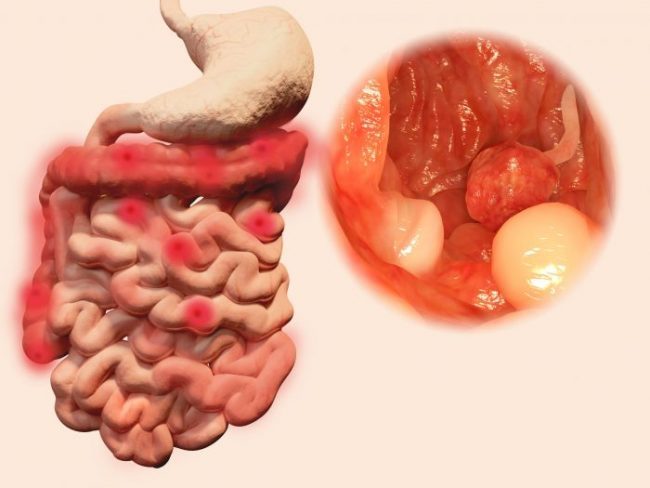Overuse of Antibiotics Linked to Precancerous Colon Polyps

Taking antibiotics for an extended period of time in early and middle adulthood may increase your risk of developing precancerous growths called polyps in your colon, a large study suggests. [1]
The research, published in the journal Gut, adds to a growing collection of evidence that the type and diversity of gut microbes may play a significant role in the development of cancer.
Many people develop diarrhea when they take antibiotics. This is because the drug kills some of the normal gut bacteria, thus allowing an overgrowth of abnormal bacteria to dominate.
Read: Gut Health is Directly Linked to Chronic Illness, Overall Health
For the study, researchers in the U.S. tracked the health of over 120,000 nurses between the ages of 30 and 55 who took part in the Nurses Health Study that launched in 1976. The team found that between 2004 and 2010, 1,194 nurses were diagnosed with abnormal growths in the colon and rectum.
Participants who had taken antibiotics for two months or more between the ages of 20 and 39 were 36% more likely to be diagnosed with a polyp, called an adenoma, compared with those who hadn’t taken a prolonged course of antibiotics during their 20s and 30s.
Women who had taken antibiotics for two months or more during their 40’s or 50’s were 69% more likely to be diagnosed with a polyp.
Similarly, women who took antibiotics for 15 days or more between ages 20 and 39, and between ages 40 and 59, were 73% more likely to be diagnosed with an adenoma.

Read: Why Probiotics are Essential if You are Taking Antibiotics
Associate Professor Graham Newstead, the head of the colorectal unit at the Prince of Wales private hospital and director of Bowel Cancer Australia, said:
“It does seem to indicate that people who have too many antibiotics might be at more risk of [sic] getting polyps than people who have less of them.
And, remembering that not all polyps turn to cancer but the cancer comes from the polyps. If you have more polyps or tendency to get polyps then maybe you are slightly more at risk of getting cancer.” [1]
The researchers wrote in the report:
“Antibiotics fundamentally alter the gut microbiome, by curbing the diversity and number of bacteria, and reducing the resistance to hostile bugs.
This might all have a crucial role in the development of bowel cancer, added to which the bugs that require antibiotics may induce inflammation, which is a known risk for the development of bowel cancer.
The findings if confirmed by other studies, suggest the potential need to limit the use of antibiotics and sources of inflammation that may drive tumor formation.” [2]
Other Risk Factors for Colorectal Cancer

Dr. Andrew Chan, an associate professor of medicine at Harvard Medical School, said the study doesn’t prove that antibiotics cause polyps, only that there is a connection. [3]
And while the study looked at women, Chan said the study likely also holds true for men.
“More research needs to be done to understand the interaction between alterations in one’s gut bacteria and future risk of colorectal cancer.” [3]
There are several known risk factors for bowel cancer besides polyps, including:
- Being overweight or obese
- Not getting enough physical activity
- Diets that are high in red meat and processed meats
- Cooking meats at very high temperatures (frying, boiling, or grilling)
- Smoking
- Heavy alcohol use
- Being age 50 or older
- A personal history of colorectal cancer
- A personal history of inflammatory bowel disease
- A family history of colorectal cancer or polyps
- Certain inherited syndromes
- Being African-American or a Jew of Eastern European descent
- Having type 2 diabetes [4]
There is even some research that suggests that working a night shift regularly may increase your risk for colorectal cancer, possibly due to changes in levels of melatonin.
Sources:
[1] The Guardian
[2] BBC News
[3] WebMD
